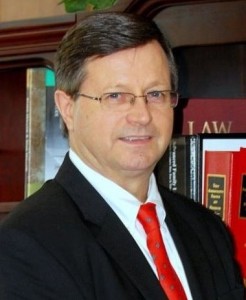Bad news for Texas lawyers. Texas small-claims court is going away. But in its place will be a court that should level the playing field for consumers facing off with company lawyers.
Small-claims court is getting rolled into Justice of the Peace Court. And by 2013, JP courts will no longer follow complicated legal rules on evidence and civil procedure. This means that lawyers won’t have an advantage because they know the law and consumers making legal claims don’t.
“Basically, we don’t want someone to be lawyered to death,” says Russell Casey, chairman of the new task force coming up with the rules. “Just because someone doesn’t understand the legal rules, they shouldn’t lose their case.”
As readers of the Fort Worth Star-Telegram Dave Lieber Watchdog column first learned, special-interest groups representing real estate agents and credit debt buyers are already lobbying the task force for new rules that could benefit them. That’s where we come in.
Casey welcomes consumers’ ideas on how the courts might operate. (Use the Contact Us page here and let us know, and we will pass your ideas on to Casey.)
“What’s out there that people are having problems with that I don’t know about?” he asked. “Have you had a situation where you felt a layman’s understanding of the law was not good enough and you ended up losing? Or it left you confused? Or mad?”
Small-claims court was created in 1953. Now millions of cases are filed each year in small-claims and JP courts. Currently, they are separate courts with different rules, but run by the same judge. Not surprisingly, that often causes confusion.
When the new rules take effect in May 2013, judicial officials expect the process to get smoother and faster.
The new state law (House Bill 79), enacted in a special session this year, uses clear language to show the way the new JP courts will run:
“The hearing is informal, with the sole objective being to dispense speedy justice between the parties.” The rules may not be “so complex that a reasonable person without legal training would have difficulty understanding or applying the rules.”
– – – – – – – – – – – – – – – – – – – – – – – –
More Watchdog Nation News:
Watchdog Nation Partners with Mike Holmes
America meets Watchdog Nation/Listen to Fun Radio Interview
Watchdog Nation Debuts New e-Book and Multi-CD Audio Book
– – – – – – – – – – – – – – – – – – – – – – – –
Lawyer Marty Leewright, who also serves on the panel, says, “The average non-lawyer person under current Justice Court rules is at a disadvantage if the other side has a lawyer.”
Often, they’re at a disadvantage in small-claims court, too, where, in Texas, a party can sue for up to $10,000. There, a consumer often must make his or her case against a company that is represented by a lawyer.
“Many people cannot afford a lawyer for small claims involving only a few hundred or a few thousand dollars,” Leewright says. “Yet they deserve justice as much as anyone.”
Leewright shows how a lawyer can gain an advantage: “For years, lawyers have used the confusion between small-claims and JP courts. Say a layperson files suit against my client in small-claims court. I will file a countersuit in justice court. They are a fish out of water in justice court. All the rules of evidence apply, and they’re going to get beaten. … You can beat people procedurally and on technicalities, and that shouldn’t happen.”
Casey, a judge since 2007, says he believes he was appointed chairman because he’s not a lawyer and the Supreme Court wants “to make sure that the rules that are put in place are designed for someone not to need a lawyer to understand them.”
The new setup will allow JP court to separate credit card cases, evictions and small claims into different categories. Credit card cases, which make up the majority of cases, involve debt buyers who now don’t have to prove personal knowledge of someone else’s debt before they go after them.
If the new rules, as expected, require personal knowledge of an old debt, thousands of cases will no longer be brought to court because debt buyers often cannot prove the facts behind the original debt.
In the remaining small-claims cases, justices of the peace will run their courtrooms more informally.
They will have the power to determine the facts of the cases themselves, meaning, for instance, they can interrupt testimony and ask their own questions. That saves time — and confusion.
Disputes over property, which were required to go to JP court, not small-claims court (which usually handles money disputes), now will be run in a less lawyerly style, too.
Read The Watchdog Nation manifesto here!
Do you want to learn how to win in small claims court? Dave Lieber, the author of this post, is one of the few American newspaper columnists who covers small claims court. These tips and many others are in the award-winning book by Dave Lieber. His book Dave Lieber’s Watchdog Nation: Bite Back When Businesses and Scammers Do You Wrong, shows you how to fight back — and win! The book is available at WatchdogNation.com as a hardcover, CD audio book, e-book and hey, what else do you need? The author is The Watchdog columnist for the Fort Worth Star-Telegram. Visit our store. Now revised and expanded in a 2012 edition, the book won two national book awards for social change.
Read The Watchdog Nation manifesto here!
Visit Watchdog Nation Headquarters![]()
Like Watchdog Nation on Facebook![]()
Watch Watchdog Nation on YouTube![]()





